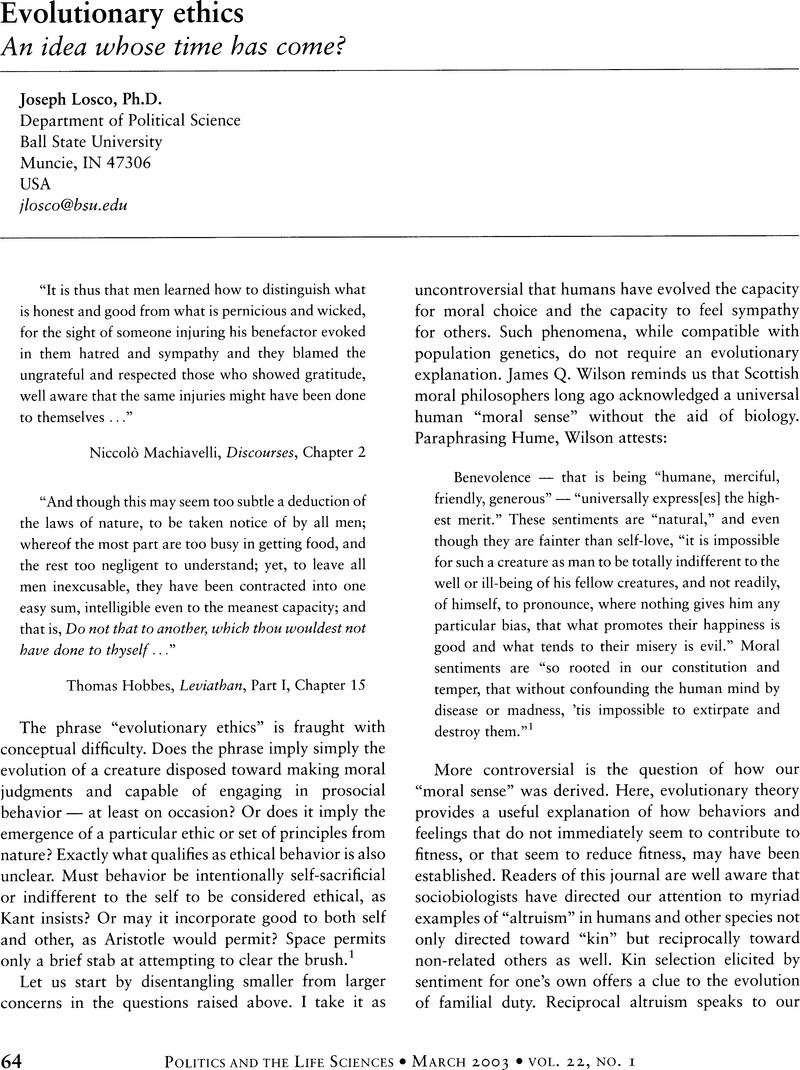Crossref Citations
This article has been cited by the following publications. This list is generated based on data provided by Crossref.
Johnson, Gary R.
2023.
In memoriam: Joseph Losco.
Politics and the Life Sciences,
Vol. 42,
Issue. 1,
p.
163.



